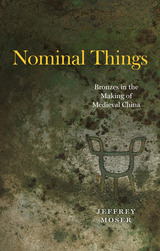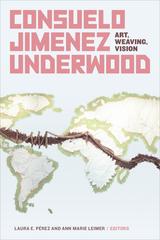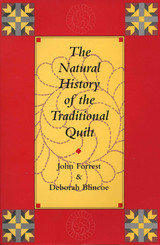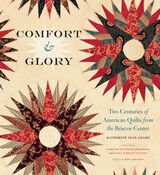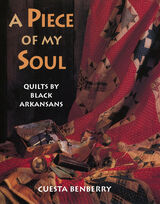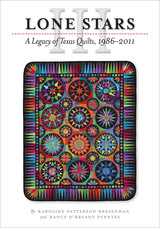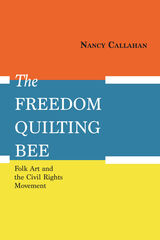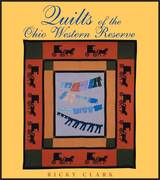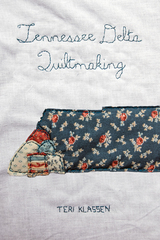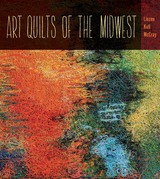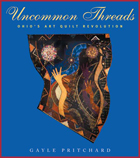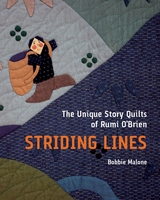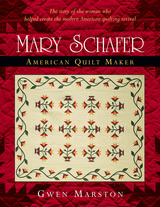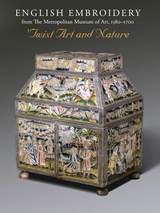Tennessee Delta Quiltmaking
University of Tennessee Press, 2016
eISBN: 978-1-62190-271-3 | Paper: 978-1-62190-270-6
Library of Congress Classification NK9112.K58 2017
Dewey Decimal Classification 746.4609768
eISBN: 978-1-62190-271-3 | Paper: 978-1-62190-270-6
Library of Congress Classification NK9112.K58 2017
Dewey Decimal Classification 746.4609768
ABOUT THIS BOOK | AUTHOR BIOGRAPHY | REVIEWS
ABOUT THIS BOOK
“Tennessee Delta Quiltmaking is an excellent study of quilting in rural West Tennessee. Both black and white quilters inhabit the small-farm region, and their quilting traditions are largely shared across racial lines. A study that highlights shared culture, rather than seeking to distinguish racial or ethnic contributions, is a welcome direction in cultural research.”—Alan Jabbour, former director of the American Folklore Society, Library of Congress
Prior to the 1960s, quiltmaking thrived in the Tennessee Delta as a crucial source of warm bedcovers among cash-poor, yet self-sufficient farm households. As agriculture mechanized, rural workers switched to factory jobs and could afford nicer houses and blankets. Quiltmaking survived because women—both black and white—reinvented it as a hobby that met personal and social needs. Though scholars have studied quilt styles with rural southern roots, few have considered black and white quiltmakers together or as part of a shared regional culture.
In Tennessee Delta Quiltmaking, Teri Klassen traces how mid-twentieth-century common quilts developed from nineteenth-century styles. Through interviews with people from rural households, Klassen uncovers the ways in which designs and labor were shared and the ways in which quiltmaking was part of the small-farm culture that was common to blacks and whites. While quiltmaking was a creative form passed down in families, limited means and accessible materials made it both a necessity and a highly evolved custom in southwestern Tennessee’s upper Delta region. For families in this region, the quilt symbolized homemaker competence and self-reliance, a trait especially valued by sharecroppers and tenant-farmers who owned no land. The culture of quiltmaking reflected living conditions and values of these folk, and Klassen details numerous changes in this culture, from how it contributed to small-farm stability to how industrialization affected the practice.
By considering quiltmaking’s practical, aesthetic, and social aspects in a historical, mixed-race context, Tennessee Delta Quiltmaking makes a unique contribution to the study of the Tennessee Delta and the understanding of common-quilt design.
TERI KLASSEN is a postdoctoral research associate at the Mathers Museum of World Cultures at Indiana University. Her articles have appeared in Journal of American Folklore, Midwestern Folklore, and Journalism Quarterly.
Prior to the 1960s, quiltmaking thrived in the Tennessee Delta as a crucial source of warm bedcovers among cash-poor, yet self-sufficient farm households. As agriculture mechanized, rural workers switched to factory jobs and could afford nicer houses and blankets. Quiltmaking survived because women—both black and white—reinvented it as a hobby that met personal and social needs. Though scholars have studied quilt styles with rural southern roots, few have considered black and white quiltmakers together or as part of a shared regional culture.
In Tennessee Delta Quiltmaking, Teri Klassen traces how mid-twentieth-century common quilts developed from nineteenth-century styles. Through interviews with people from rural households, Klassen uncovers the ways in which designs and labor were shared and the ways in which quiltmaking was part of the small-farm culture that was common to blacks and whites. While quiltmaking was a creative form passed down in families, limited means and accessible materials made it both a necessity and a highly evolved custom in southwestern Tennessee’s upper Delta region. For families in this region, the quilt symbolized homemaker competence and self-reliance, a trait especially valued by sharecroppers and tenant-farmers who owned no land. The culture of quiltmaking reflected living conditions and values of these folk, and Klassen details numerous changes in this culture, from how it contributed to small-farm stability to how industrialization affected the practice.
By considering quiltmaking’s practical, aesthetic, and social aspects in a historical, mixed-race context, Tennessee Delta Quiltmaking makes a unique contribution to the study of the Tennessee Delta and the understanding of common-quilt design.
TERI KLASSEN is a postdoctoral research associate at the Mathers Museum of World Cultures at Indiana University. Her articles have appeared in Journal of American Folklore, Midwestern Folklore, and Journalism Quarterly.
See other books on: Crafts & Hobbies | Folk & Outsider Art | Quilting | Quilts & Quilting | Rural women
See other titles from University of Tennessee Press

